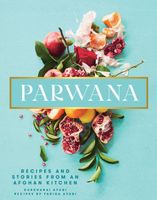Advertisement
The butterfly effect
Appears in
Published 2020
These lessons were beckoning us to transfigure into a version of ourselves that would have something life-giving to offer both ourselves and those around us. In 2009 we opened the doors to Parwana. Fittingly for our own metamorphosis, the word parwana is Farsi for ‘butterfly’. It was a quiet start; there were no grand plans, other than to see if people liked the food. But it was important to us, because it was a manifestation of all the things we had learnt on our journey of displacement.
Parwana is underpinned by my mother’s vision – her belief that through her knowledge of the art of Afghan food, gifted to her from her mother and her foremothers, she had been entrusted with a treasure of old, a symbol of Afghanistan’s monumental and culturally interwoven past. This ancient gift was all the more priceless because it captured the essence of the lives lost and the dreams dissipated during the course of our journey. Parwana had come to be our recognition and expression of the inseparability of joy and sorrow. The many tears of loss had stripped us bare and raw and ready to create something in an image that was not confined by dispiriting boundaries of fear and false binaries, but in acknowledgement of what it was to be imperfectly and joyously human. Parwana was an ode to our past, buoyed by the hopes of our future.

